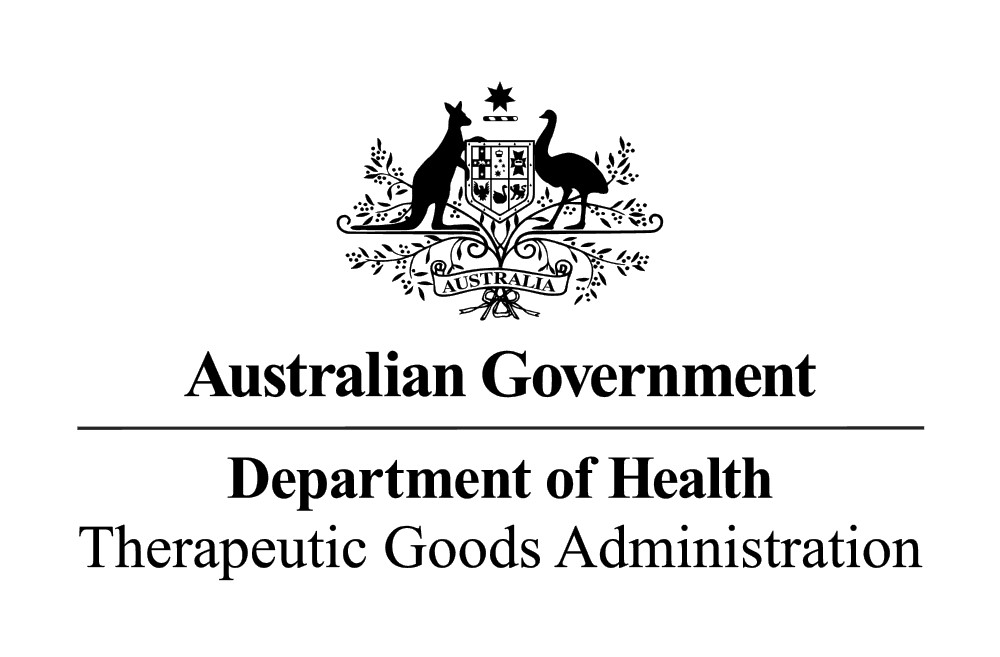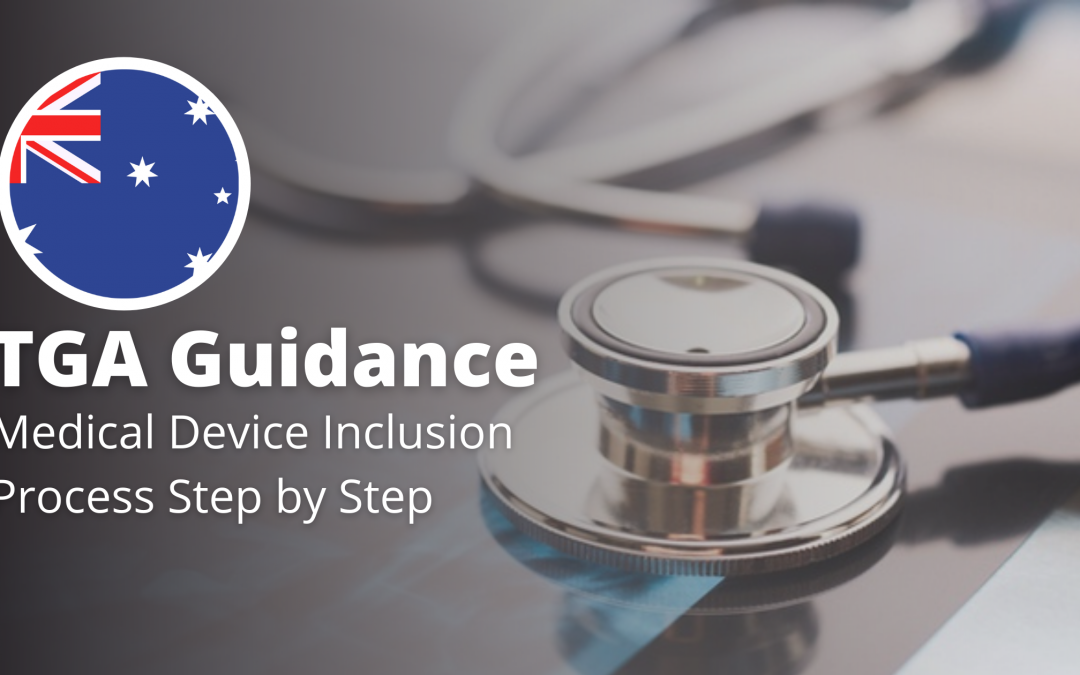The Therapeutic Goods Administration (TGA), the Australian regulating authority in the sphere of medical devices, has published a detailed guidance document dedicated to the process of inclusion of medical devices in the Australian Therapeutic Goods Register, the country’s national register of medical devices and other healthcare products.
According to the applicable regulatory requirements, any and all medical devices intended to be marketed and used in Australia should be included in ARTG before becoming available to healthcare professionals and customers. The official notice published by the TGA describes the process to be followed by the applicant with regard to new medical devices and provides clarifications on each particular step.

Table of Contents
Step 1: Determining whether the product in question is a medical device that is subject to inclusion in the register.
First, the interested party shall check whether the product subject to review should be included in the ARTG. For this purpose, the interested party shall determine whether the product:
- Is a general medical device, an in vitro diagnostic medical device, or not a medical device at all;
- Falls within the scope of any of the exclusions or exemptions;
- Is a therapeutic product but not a medical device.
In order to determine whether the product in question should be traded as a medical device, the responsible entity shall check whether it meets the definition of a medical device as set forth by the Therapeutic Goods (Articles that are Medical Devices) Specification 2014. According to the guidance, the medical device manufacturer should be the one responsible for determining the intended purpose of a product. It is important to ensure that all documentation accompanying the product, including its labeling and instructions for use, as well as any advertising materials contain the correct indication of the intended purpose. Should an entity change the intended purpose of a product, such an entity should be treated as a medical device manufacturer. Hence, it will have to comply with any and all applicable regulatory requirements.
Certain products are excluded from mandatory inclusion in the ARTG. The applicable exclusion criteria are prescribed by the Therapeutic Goods (Excluded Goods) Determination 2018. Some of the products are also exempted from inclusion in the register. Such products include ones that are:
- Supplied for clinical trials in Australia,
- Prescribed by authorized prescribers,
- Supplied under the Special Access Scheme,
- Imported for personal use under the Personal Importation Scheme, or
- That are custom-made medical devices.
Should the product in question fall within the scope of any exclusion or exemption set forth by the applicable legislation, such a product should not be treated as a medical device.
Step 2: Considering the most important aspects
According to the recommendations provided by the TGA, before applying for inclusion of its medical device in the ARTG, an interested party shall consider several key aspects associated with the product, such as:
- Where the medical device in question should be subject to conformity assessment. In this regard, an interested party shall indicate the proper class of a medical device in accordance with the applicable risk-based classification and also provide necessary conformity assessment documentation demonstrating the device complies with the applicable regulatory requirements. In certain cases, a TGA Conformity Certificate could be required to move forward with the inclusion process.
- An entity intended to place medical devices on the Australian market should meet the applicable eligibility criteria. For instance, it should be based in Australia in order to be allowed as a sponsor – a party placing medical devices on the market and being responsible for it thereafter. In this regard, a sponsor shall also have in place all necessary documentation for a medical device to be provided by its manufacturer, including the documents confirming that the device subject to review complies with the applicable regulatory requirements and thus could be allowed for marketing and use in the country.
- Application for inclusion in the ARTG related to low-risk medical devices could cover more than one medical device. The authority allows the inclusion of several devices of the same kind in one application in order to reduce the regulatory burden and streamline the process.
- Eligibility for Priority Review designation. In certain cases, a medical device could be eligible for a Priority Review designation – in such a case, the application for its inclusion in the ARTG would have higher status.
- Some of the applications will be subject to an audit to be carried out by the TGA. In such a case, the applicant will have to provide additional documentation.
Step 3 – Accessing TGA business services.
According to the applicable regulatory requirements, the application for inclusion in the ARTG should be submitted in electronic format. For this purpose, the applicant shall obtain a Client ID in order to be able to use the TBS website. When applying for the services for the first time, the interested party shall provide all necessary information by completing the Organization Details form. In response, the regulating authority will provide a Client Identification number assigned to the applicant. This number should be used for all further communications with the regulating authority. The TGA additionally emphasizes the importance of keeping valid the information regarding the authorized person entitled to act on behalf of an entity, as it will be the primary point of contact for the TGA. The contact information the authority will use includes the postal and email addresses, contact phone numbers for the company in general and the contact person in particular, as well as references to the authorized persons indicated by the company.
Steps 4-6 describe how the application for inclusion in the ARTG should be submitted with regard to various medical devices, including Class I non-sterile, non-measuring, and Class 1 IVD medical devices; Class 1 general and in vitro diagnostic medical devices intended to be exported from Australia; and medical devices of all the classes except those mentioned above respectively.
Step 7 – Processing the application
The TGA could refuse applications submitted for the inclusion of a medical device in the ARTG if they do not pass the preliminary assessment, are selected for an audit, or are withdrawn by the applicant itself. Should the application meet all the applicable requirements, the TGA will proceed with adding the medical device to the ARTG. Under the general rule, an applicant will be informed about the decision taken with regard to its application within 20 business days starting from the date the applicable fee has been paid.
Step 8 – Printing the ARTG certificate of inclusion.
Upon successful completion of the inclusion process, the applicant will be able to print a certificate confirming that the medical device in question has been included in the ARTG. This could be performed via the TBS website.
In summary, the present guidance published by the TGA describes in detail the process of inclusion in the Australian Register of Therapeutic Goods. The document provides additional clarifications on the particular steps in the context of actions to be taken by an interested party before its product will be allowed for marketing and use in Australia.
Sources:
https://www.tga.gov.au/publication/medical-device-inclusion-process
How Can RegDesk Help?
RegDesk is a next-generation web-based software for medical device and IVD companies. Our cutting-edge platform uses machine learning to provide regulatory intelligence, application preparation, submission, and approvals management globally. Our clients also have access to our network of over 4000 compliance experts worldwide to obtain verification on critical questions. Applications that normally take 6 months to prepare can now be prepared within 6 days using RegDesk Dash(TM). Global expansion has never been this simple.


